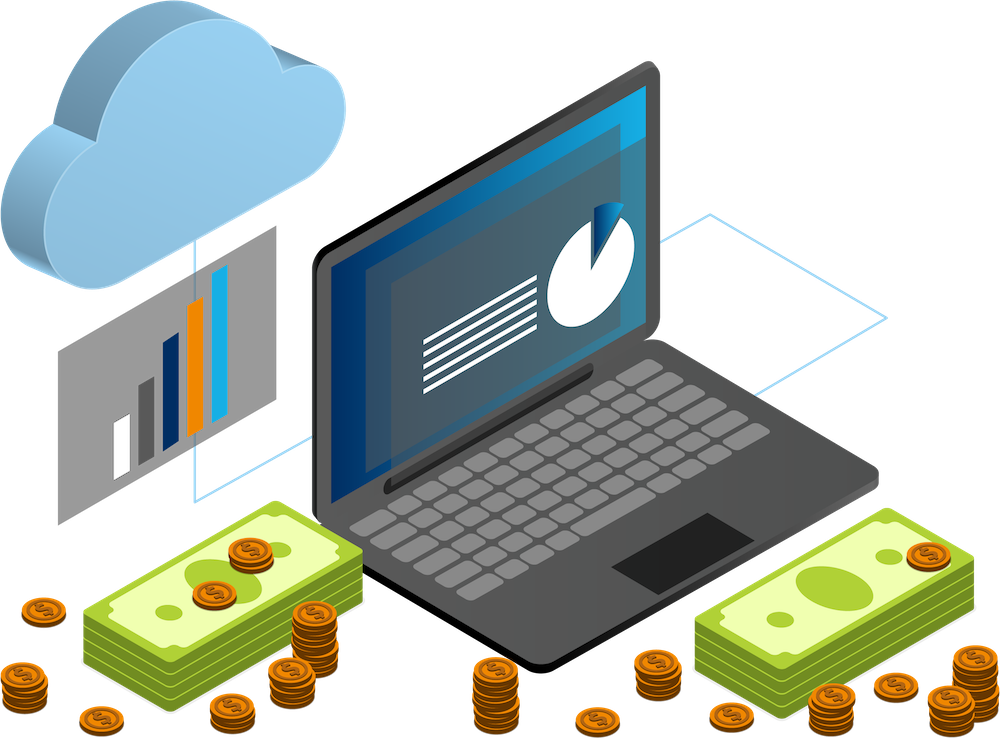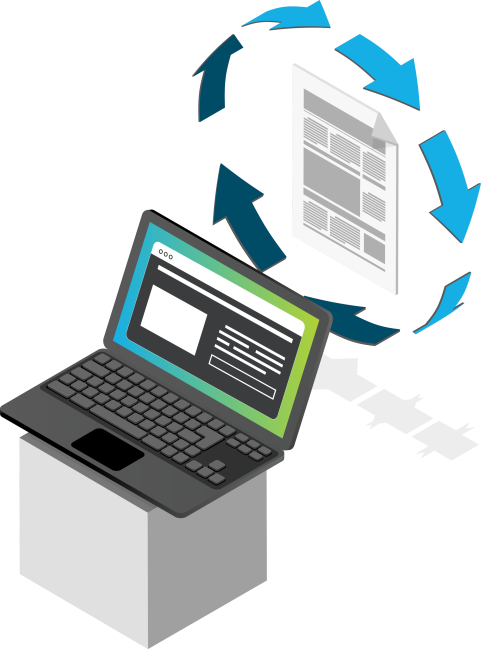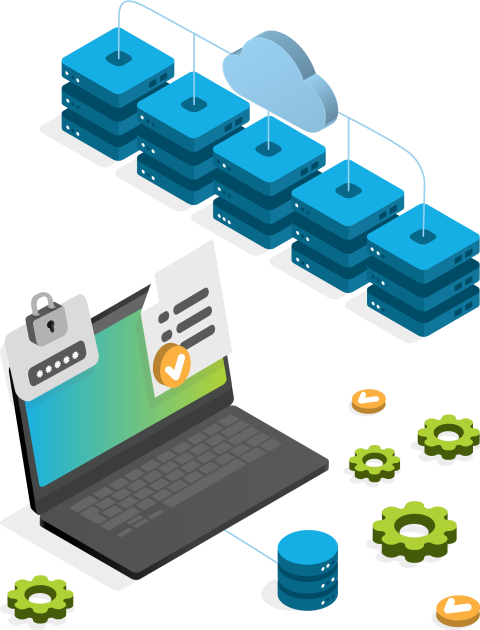Managed IT Services for Retail
Create a seamless experience where offline and online retail coexist and co-develop; driven by cloud technology.

The IT Landscape for Retailers in 2024
As Covid-19 lockdown measures eased in 2021, retailers were thrust into rapid change after months of uncertainty and “new normal” procedures. The ‘great re-opening’ saw customers flocking back to malls, shops and retail parks to experience physical, in-store shopping after months spent indoors. This didn’t however dent the new increased demand for eCommerce. Retailers are now having to provide a service to a new generation of omnichannel shoppers with a whole different set of expectations in comparison to traditional customers.
In an industry where volatility had become the new normal, effective digital transformation was the catalyst in success stories for retailers. Those investing in it went on to remain adaptable and profitable during tumultuous times.
Exploring how cloud solutions allow retailers to deliver seamless, personalized, and engaging customer experiences across all channels helps retail become resilient and futureproof. After all, if we can learn anything from the retail success stories of 2020-22, it’s the organizations that had already implemented digital transformations and transitioned their technology foundation to cloud-based systems who came out on top.
According to Gartner, worldwide end-user spending on public cloud services is forecast to grow 20.7% to a total $591.8 billion in 2023, up from $490.3 billion in 2022 – retail is no exception to this trend. From investing in same-day delivery models to reducing overhead costs, cloud computing is set to continue transforming retail in unprecedented ways:

Hybrid and Omnichannel customer journeys
Omnichannel shopping offers huge convenience to shoppers where they can simply scroll an inventory of goods, live stock status and a delivery method that suits them. For retailers, online shopping allows them to understand buyer behaviour to such granular levels that they can provide a holistic and detailed view on our needs, aspirations and what we want from our retailers.
On the other hand, in store shopping was craved more than anything after the pandemic subsided. Shoppers are now seeking good store experiences and the opportunity to touch/feel what they are purchasing.
Hybrid shopping is about bringing these worlds together to create customer journeys that tick all of the boxes.
Physical stores now need to understand who we are and what we want as we walk into the store – just as an online store would when we arrive on their website. On the other hand, online stores are now needing to develop an experience we would enjoy in the real world. Innovative technology can help in this area.
With all these tactics, its important that your cloud strategy is seamless, resilient and secure. That’s where Opti9 comes in.
Catering for the new, consciously aware customer
Retailers are continuing to adapt to the fact that many modern buying decisions increasingly lie around ethical, environmental, and sustainabity credentials.
Two-thirds of us consider ourselves to be “belief-driven buyers”, with a strong desire to know that the products we buy are supplied by organizations with strong environmental, social, and governance (ESG) principles. Retailers that successfully commit to this movement will find that they quickly build stronger loyalty with their customers while often also developing more efficient operations and processes.
Opti9 can help you review your technology stack and ensure its operating in an efficient and effective manner.


Supporting Cashless, Contactless, and Autonomous shopping
Consumers are demanding more streamlining in the way they pay for goods and how they are delivered. Convenience trends such as buy-online-pickup-in-store (BOPIS), buy-online-return-in-store (BORIS), and buy-online-pickup-at-curbside (BOPAC) are quickly becoming expected as standard. Artificial intelligence can make these a possibility by automating complex inventory management processes.
Big Data is crucial to delivering these sort of innovations and a robust and efficient technology stack backed up by world class backup solutions is fundamental in progressing this strategy.
Don't be a Target
Retail and eCommerce businesses are the most obvious targets for cyber-attacks and ransomware because of their wealth of data, large customer databases and high volume website traffic. Many retail businesses do not have a proper backup & disaster recovery strategy in place to avoid loss or downtime in case of a breach or other business interruption.

Why choose Opti9?
We understand the particular demands and problems that retailer businesses face when making decisions that may have a significant influence on their bottom line. We specialize in assisting merchants in developing quick data protection methods and employing the correct software and procedures, allowing you to focus on your passion – running your company.
Here are some common retail frustrations and issues we’ve come across and we have the expertise to help:
- How do you manage several systems across various locations?
- Is there an obsolete duplicate backup program that you’re no longer using?
- Are there any IT-related skills gaps among your sites and locations?
- Do you have any concerns about ransomware or data security?
- Do you have to spend money on equipment in order to utilize the system effectively?
- Do you need fast recovery for consumer-facing services?
- Is it important for you to know that your organization’s technology is always-on, continuous, or unpredictable?
